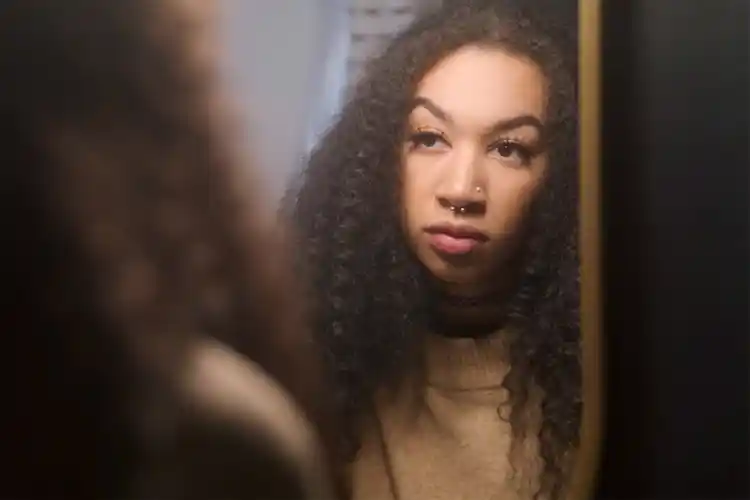Embracing Diversity as the Norm

Hide Video Transcript
Video Transcript
NAYELI CHAVEZ
When we're talking about addressing colorism, we are trying to undo 500 years of systemic miseducation. So while I may feel frustrated and angry when people make comments that are hurtful, that are coloristic, I have to remember that all of us have been exposed to that education before we were even born. And that's going to take a long time to change and to undo. JOSEPHINE ALMANZAR
It's not easy to fight against the grain, to go against the grain and your family and your culture. When you're taught a certain message over time, it's hard to unlearn that, especially by yourself. It really is an act of full on rebellion to fight against what you've been told your whole life. RADHIKA PARAMESWARAN: Our discussion that has to happen in the broader society before we take it outside, you know communities of color. These conversations have to happen in schools, in churches, in college, in open settings. There has to be writings about it in the media. We have to have documentaries on it, and we have to get prominent people in society engaged in talking about it and dispelling it.
KELLY DAVIS
What have you seen is being done to combat colorism? NAYELI CHAVEZ
I think social media has been a huge tool for awareness and communication, where before people may have felt isolated if they didn't have other members of the community in the neighborhood or in the community where they live. Now, social media has helped people to connect, to network, and to begin engaging in a variety of activities. JOSEPHINE ALMANZAR
Whenever I'm around this new generation, I feel inspired. I feel very hopeful because they are actively curious about their history and curious about they themselves as they are naturally. They're more likely to advocate for themselves, and that is something that gives me hope. KELLY DAVIS
I wanted to see this hope that Dr. Josephine spoke of. So I traveled to Dallas, Texas to visit the May family. MARLON
Hello. KELLY DAVIS
How are you? MARLON
Good. KELLY DAVIS
Nice to meet you MARLON
Nice to meet you. KELLY DAVIS
Marlon and Daniella are millennial parents and mental health professionals raising afro-latina triplets. When did you notice that your daughters had an awareness of different skin tones and even further differing thoughts or opinions towards different skin tones? DANIELLA
One pivotal moment for me I think was my mom told me they were taking a bath, and she had a toy where that sprays water. And she put water and soap in it, and she said, well, if I spray this, my skin will be lighter. And so I was like, OK, this is-- let's talk about this a little bit deeper. KELLY DAVIS
So how have you all navigated conversations about skin tone as a multicultural family? MARLON
Right now, the conversation for them is around what makes me beautiful. And I didn't realize we were going to be having this conversation so early in their development. So the reinforcement of the fact that you are beautiful, you are smart, I love the way you run fast, you're so brave, it was almost as to validate who they were. We needed to validate their identity, what they look like first. KELLY DAVIS
OK, so let's say there is a young girl who may not have parents who are so aware and let's say she has darker skin and she has heard or experienced colorism, how would parents start to counter that now? How would you advise a mother and father? DANIELLA
A big goal of ours as they've been growing up is their positive self-talk. How do you talk to yourself? When you look at yourself in the mirror or when you make a mistake, what is it that you're saying to yourself? What's your internal dialogue? Obviously, I advocate for therapy, but I always want parents to talk to their children first. We tend to talk about them like they're not-- We talk about them, in front of them, but they're listening and they see and they hear, and that's your point of information. What are you thinking? What are you feeling? Let's talk about it. KELLY DAVIS
My last question would be, what do you hope for your daughters as they grow and develop into their unique sense of selves and their unique identities? What are your hopes for them? MARLON
So my hope is for my kids to be respectful, loving, honest, and never want to leave my side. DANIELLA
I come from a more realistic point of view. My hope is that they're unapologetically themselves and whatever it is that they decide to be, whoever they want to be, do it without apologizing. KELLY DAVIS
I love that. I left the May family feeling completely inspired. The way they raised their children to see diversity as the norm gave me hope that if more parents heard of their story, maybe diversity can become a social norm, too.